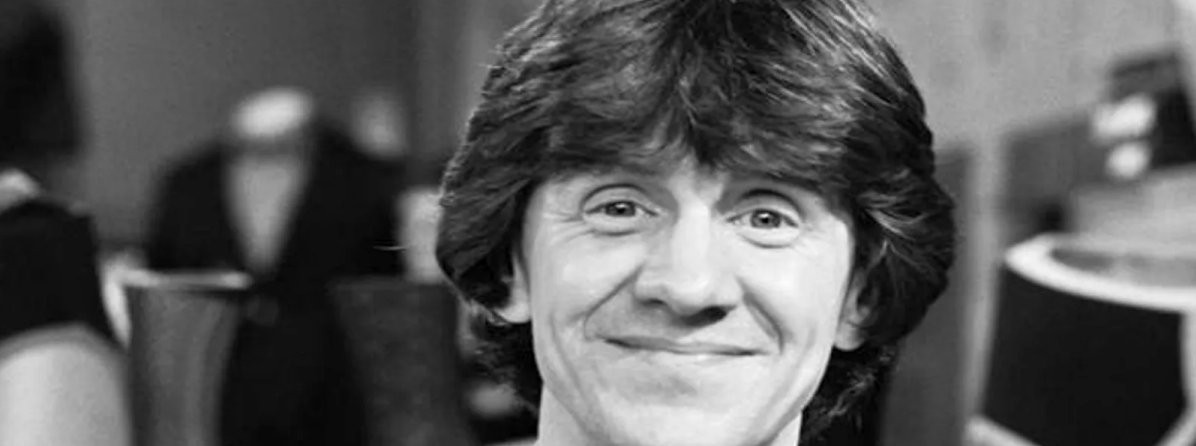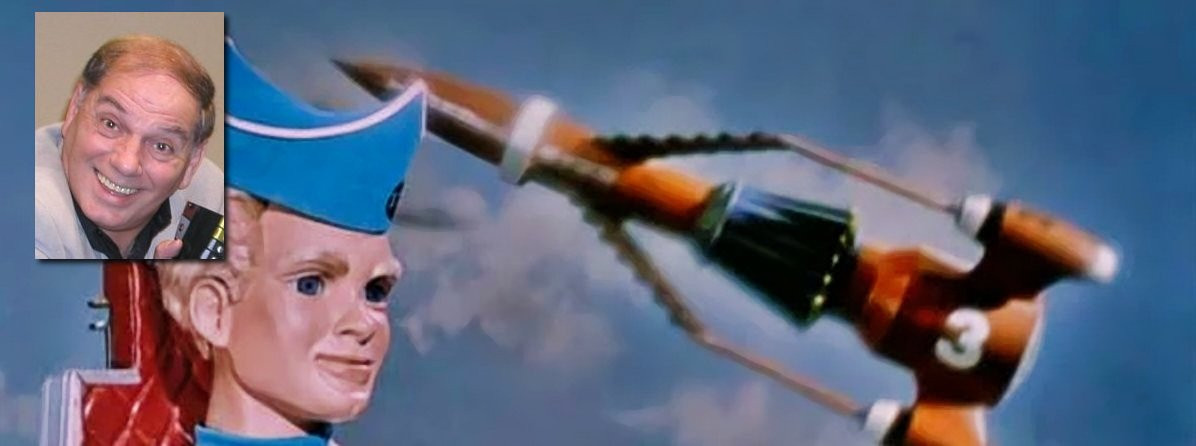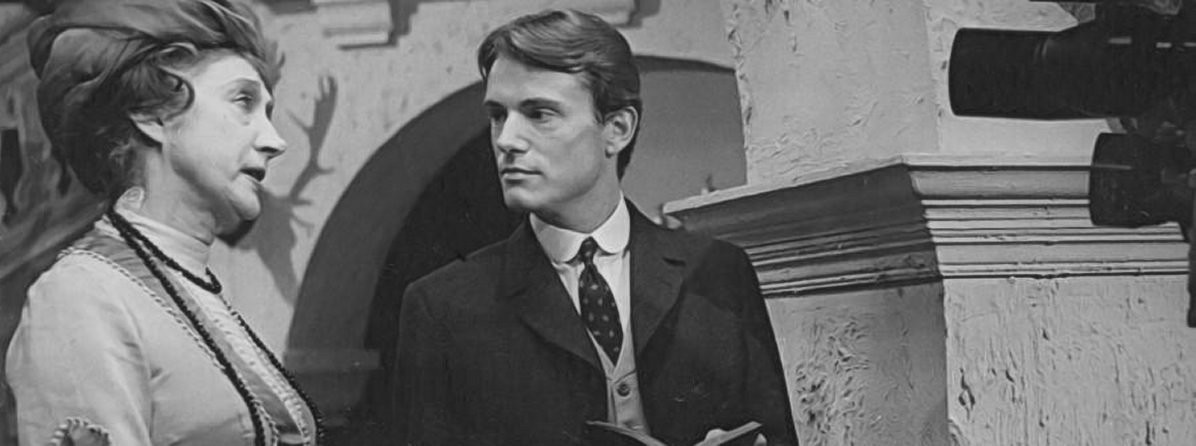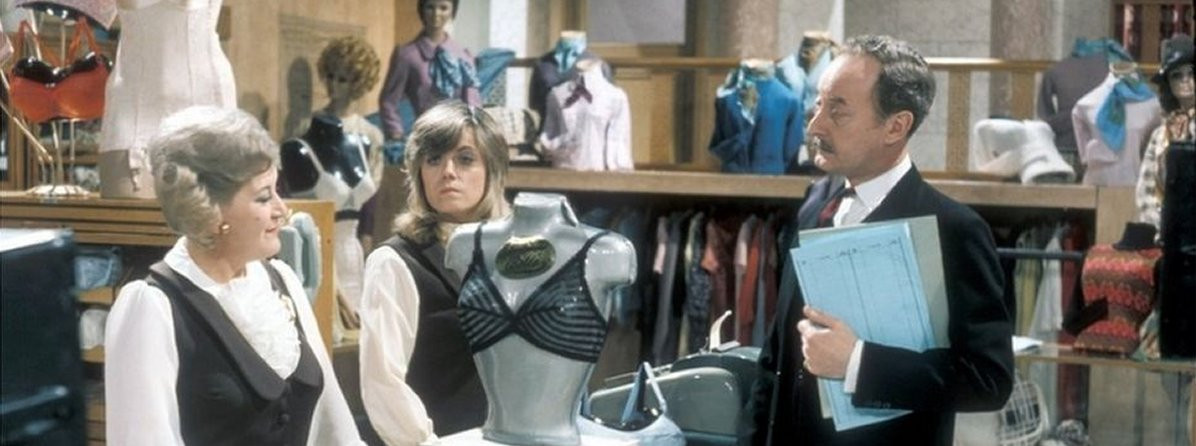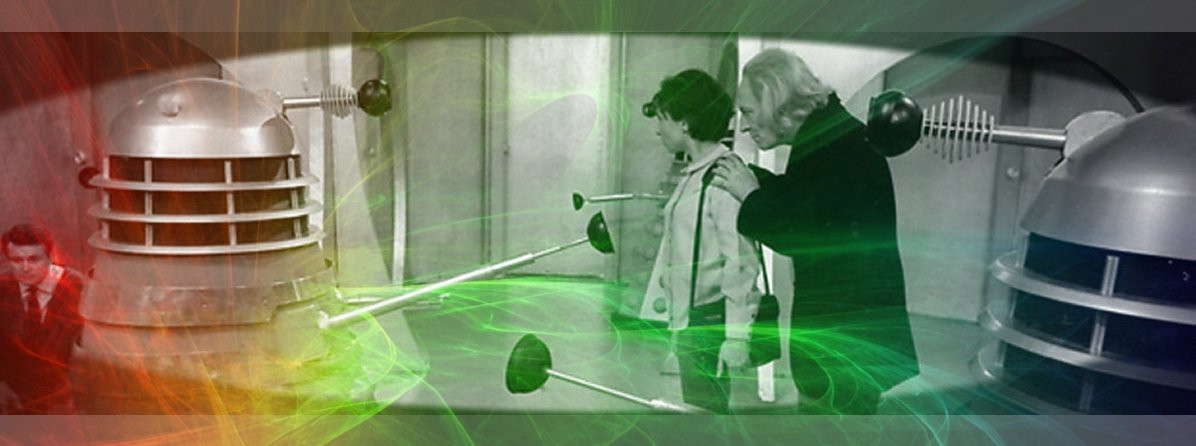
Mike Berry Interview
"I didn’t have a clue what I wanted to do on leaving school, but fortunately the choice was made for me."
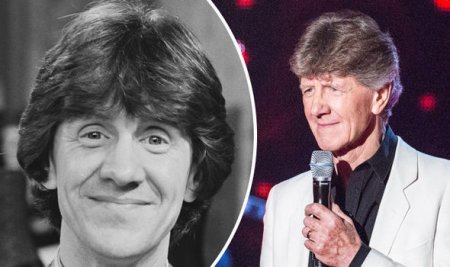
This interview with Mike Berry was previously published on Teletronic in 2008.
Although remembered around the world by millions of fans as Mr. Spooner in the long running classic BBC sitcom 'Are You Being Served?', Mike Berry is also an accomplished singer/songwriter with a prestigious 'British Academy of Songwriters Composers & Authors (BASCA) Gold Badge Award', for achievements in music. His first hit single, 'A Tribute to Buddy Holly' resulted in him going on tour with The Rolling Stones, The Beatles and Holly's own legendary backing group, The Crickets (with whom he did a guest spot). Over forty years since he started in the business, Mike Berry continues to entertain and has recently released a new single ‘Hi There Darlin! (Merry Christmas).' He took time from his busy schedule to talk to Television Heaven about his career in show business.
Mike Berry was born in Northampton, but six weeks after his birth, his mother, Jerretta Bourne, ‘Jet’ for short, took him to North Wales where they stayed for the next two years. Jet was a talented amateur actress and singer in the Gilbert and Sullivan mould who also played piano and piano-accordion, and Mike and his siblings used to attend all her performances. But there was no hint that Mike would follow in her footsteps. "I wasn’t an early, budding performer-that was my brother, who’s an actor. My older sister, who lives in Carlsbad NM in the US, was the first one to show she had a real singing talent and could have had a singing career, she modelled her singing style on Doris Day, but she married a G.I. and went off to live in Amarillo, Texas and have four kids. Actually both of my sisters could sing, Pam, the one in Wales was less gregarious but she and Val used to harmonise (us boys too later on) round the piano which my mum used to play and yes, my mum was also into amateur dramatics and performed in Gilbert & Sullivan operettas.
"My mum didn’t encourage me head on, only because I wasn’t showing any particular interest at that time, although I remember being impressed with Winifred Atwell’s boogie woogie piano playing, but just by being musical herself and she and my sisters playing music in the house and having parties at the weekend, I’m sure all that rubbed off on me and ignited the spark. It was also a form of escapism from what was a pretty poor existence in financial terms and then later when my father left, (she and he being totally incompatible) my mum stayed until I left school and saw me into a job in the printing trade, then got her own mum to come and live with my brother and me while she went off to the States to be with my sister who was expecting her first child.
The family, including Mike's grandparents and sisters Valerie, Pamela and brother Peter, all decided to move to London just as the War was finishing and Mike's family moved into 47 Clissold Road, Stoke Newington, while his grandparents lived just across the road at number 64. A couple of years later they moved round the corner to 185 Albion Road, from where, at the age of five, Mike attended his first school, William Patten Primary School in Stoke Newington Church Street. Mike excelled at this school, and at the age of 11 years won a scholarship to Hackney Downs Grammar School, (dubbed the 'East End Eaton') which also boasted the likes of Michael Caine, Harold Pinter, and the 1960s tycoon John Bloom among its former celebrated students.
"Stoke Newington was definitely not a ‘nice’ place to be, very working class and quite slummy in a lot of areas, but as a kid that’s something you don’t notice because you’ve known no different, it’s the norm to be playing on bombed sites and roaming the streets on your own at five, six and seven years old with your backside hanging out of your pants and getting into fights with other rough kids just to survive. I didn’t have any problems with bullying at school either, although I was only average size or slightly above, I could look after myself and it was a matter of macho pride to know who you could beat and what your position was in the ‘best fighters in the school’ league. I was second! That Martin Vanderson was just too big for me, but I tried every now and then to see if I could beat him...never did! How sad was that?"
Mike's childhood was not without complications though, and at the age of 13, just as he was preparing for the most important academic period of his life, Mike's father walked out of his life forever but not before informing Mike that his children were "the four biggest mistakes of my life." It's an event that has left a bittersweet memory. "My father leaving home, for me anyway, was like a big dark cloud lifting and a great sense of relief and release. He was a miserable, grouchy, begrudging presence for most of my childhood with never a kind word to say and totally void of any fatherly love or affection. There was always a feeling of potential violence when he was home and one of his stock phrases was, "Get out in the fresh air!" regardless of what the ‘fresh air’ i.e. ‘the weather’ was like! Although he only ever thrashed my brother and me once, he would be locked up for it nowadays. It obviously affected me considerably! I can’t really speak for my siblings but I think my brother was similarly affected!" Clearly, though, Mike's education suffered as a result and he didn't even sit his 'O' Levels (GCSE's), instead, at the age of 15 opting to join the printing industry as a compositor’s apprentice.
"I didn’t have a clue what I wanted to do on leaving school, but fortunately the choice was made for me. My brother worked on a periodical called ‘The New Scientist’ and his boss, Sir Hugh Cudlip, put in a good word for me at St Clements Press for a 6 year apprenticeship as a printer’s compositor, a terrific job by anyone’s standards at the time ‘a job for life’ as they used to say. Only of course, it wasn’t!"
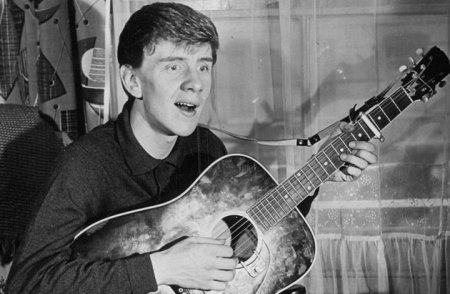
Round about this age Mike also discovered that he had a reasonable singing voice and he became interested in the Skiffle craze that was by then sweeping the country. "First Lonnie Donnegan happened with ‘Rock Island Line’ followed closely by Elvis, Little Richard, Jerry Lee Lewis, Buddy Holly and all the other pioneer rock ‘n’ rollers and metaphorically speaking, all hell broke loose, I was hooked!" So hooked in fact that Mike decided to take a chance by performing publicly. "The first gig I ever did wasn’t actually a gig so much as a baptism of fire. I was so determined for someone to hear me sing that I walked up to the Manor House pub near where I lived at Manor House, near Finsbury Park, and walked upstairs to what became ‘The Downbeat Club’, and which later hosted the likes of Rod Stewart and Chris Farlowe, and asked if I could sing in front of the assembled crowd. The guy I asked must have thought I was a bit simple, and maybe I was, but he said "Okay son" and I stood frozen to the spot playing a concert Spanish guitar a dentist friend of my Mum’s had ‘lent’ me (I’ve still got it!) knowing only 2 or maybe 3 chords and sang a Buddy Holly song. The only thing that moved was my mouth to let the sound out, God knows what they must have thought; I don’t even remember leaving!"
But it was the start of a new musical career for Mike. "I formed a skiffle group with three pals called The Rebels and we just ate, slept and drank skiffle and rock ‘n’ roll. I was still working in the print and did so for three years." So with friends Peter (guitar) Terry (tea chest bass) and Ray (guitar) and Mike on washboard and vocals ("I couldn’t play anything. Singing was my main asset, but the irony is, that my sisters and brother were all taught piano, but my mother had such trouble getting them to practice that she didn’t even bother with me, the very one that could have made good use of the training!"), the group set about getting local gigs.
It was while with The Rebels that Mike wrote his very first song, ‘Sweet Leslie Ann.’ The skiffle group progressed to 'band' status with electric guitars and also acquired a new name; Kenny Lord and The Statesmen. A guy called Alan, who worked with Mike in the print, knew of a recording studio in Wandsworth where the band could make a demo disc. "Alan was a bit of a hippy and was in a skiffle group called The Yakkas. He told me of a ‘studio’ in Wandsworth, South London, where we could make a demo with my band to send out to get gigs. So we duly went to the ‘studio’, actually the engineer, John Hawkins’ front room, in Magdalen Road, (pronounced Maudlin like the Oxford College) and we made a demo of 4 tracks; ‘Dream Lover’, ‘Please Don’t Tease’, ‘Be-Bop–a-Lula’ and ‘Peggy Sue Got Married’. I took a copy to work for this Alan to hear and he offered to play it to the leader of his skiffle group, Peter Raymond, real name Iaquinandi (pronounced Yakwinandi, hence The Yakkas) and Peter, or Yak as he was known, loved the demo, came to see us rehearse and sent the demo to both Jack Good and Joe Meek. He was one of those guys who just knew stuff, like where these two people lived and how to get the demo to them. I duly met Jack Good (the legendary TV producer of one of the best rock ‘n’ Roll shows on TV at that time, "Oh Boy") who loved the demo and when we met he already had a song in mind to record and had a studio booked! I was going to be the next Adam Faith!"
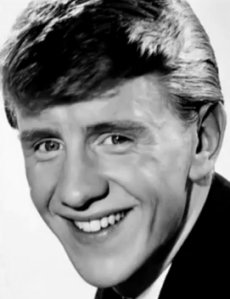
But before Mike put pen to paper with Good there was a change of plan. "Shortly after this and before the session with Jack Good had happened, I went to see Joe Meek, who was in raptures about ‘Peggy Sue Got Married’, talking about how I was going to be his Buddy Holly and that he had an album sleeve planned with a picture of me superimposed on a ghostly picture of Buddy Holly etc...etc. I was hooked. So armed with my Nan and a pen I went to 304 Holloway Road and signed up with Joe! I was barely 18!"
Joe quickly got Mike into his own recording studio, if that is the right term for it. "I’d never seen a studio before, so Joe’s front room, although a bit cramped, might have been the same as any other as far as I knew. It was a mess though, wires everywhere all over the floor and very tatty. It was ‘organized chaos’ though Joe knew where everything was and didn’t miss a trick. ‘The Statesmen’ brought in their meagre equipment, they only had 2 10 watt and my one 15 watt Vox amp and the drummer had a snare drum and a hi hat. No bass drum, toms or cymbals. I didn’t even notice, I’d been used to a tea chest bass and a washboard. I was only concerned about the singing.
Joe must have wondered what on earth was going on. Anyway somehow we made a recording of two songs, one was called ‘Set Me Free’, written by Yak and I can’t remember what else we did, possibly ‘My Baby Doll’" I asked Mike if looking back, all these years later, he thinks he made the right move by turning down Jack Good? His response: "I have grave reservations about that!"
About the same time, Mike's apprenticeship in the print came to an abrupt end. "I left, or at least was given a hefty push, after three gruelling years, when my immediate boss told his boss that I was getting in late because I was out late gigging the night before. Anyway I was hauled into the office and given an ultimatum, "Quit the singing, or you’re fired!" I was VERY concerned, as was my Nan, who was my guardian at the time. I asked Joe Meek what he thought I should do and he said, "Chuck your job!", a totally irresponsible thing to say in hindsight, but it was all the encouragement I needed to tell them where to stick their job, so I did!"
With 'My Baby Doll' and 'Set Me Free' down on tape, Joe sent a copy to Decca Records head Dick Rowe. "Rowe sent 'Will You Still Love Me Tomorrow' to Joe saying he liked the singer but didn’t like the song so would he record WYSLMT and they’d release it. Joe was NOT very happy about this but did it anyway. Had it been a hit he may have continued with Decca, but when The Shirelles version was released anyway and had they had a hit, Joe wasn’t best pleased, so ignoring Decca he sent 'Tribute To Buddy Holly' to EMI who put it out. When it became a hit, Dick Rowe wrote to Joe asking him why he hadn’t offered the track to Decca and Joe in so many words told him where to go!"
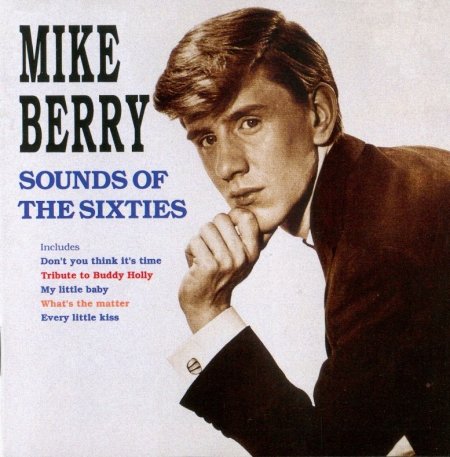
Mike had to wait a full nine months after signing his contract before his first hit ‘A Tribute To Buddy Holly’ was released. By this time Peter Raymond had teamed Mike up with The Outlaws and they were touring the length and breadth of the UK performing in clubs and dance halls which were mostly ‘corn exchanges’ and town or village halls. 'A Tribute to Buddy Holly' steadily climbed the charts. “The memory I have to do with ‘Tribute’ was that having left the print I had a job in Berry’s Music shop (no relation) in Mare Street Hackney in London, and I remember walking up Mare Street reading the 'NME', and there I was in the charts. NOBODY had told me and I was still working as tea boy for £7 a week. I also remember driving along and hearing 'Don’t You Think It’s Time' on Family Favourites on the Light Programme (Radio 2 to be) and I was very tickled with that, I felt I’d really arrived."
Along with chart success came a number of television dates which was a lot easier than touring in a freezing cold van up to Scotland and all over England and Wales. However, there was still touring involved and clubs to play. One of the clubs they appeared at was The Cavern in Liverpool where they met Brian Epstein and The Beatles. It was during a week residency at The Cavern that Brian Epstein invited Mike and the band back to his flat to listen to a tape of The Beatles and in his naiveté offered Mike a lot of work in and around Liverpool if he (Mike) could get ‘His Boys’ on the television. His thinking was that Mike already had a hit and had been on television - so he must have all the right contacts.
When the whole sixties thing broke and British groups were dominating not just the British charts but the American charts as well, Mike might have been tempted to try his luck abroad. "'Tribute' actually broke out in a few states some time before any other bands made it. "I actually got a letter from The Crickets' manager, Dan Whitman, whom I’d met while touring with them in the UK, congratulating me on the record’s success, obviously laying the ground for my possibly working with The Crickets should the record take off big time! Robert Stigwood, my manager, didn’t, or more probably wasn’t able to capitalise on the situation, just through lack of influence and/or knowledge of the American market. It was The Beatles that opened the door for everyone but I never got another chance as Stigwood went bust with all my money and I had no management to promote me."
Before he had time to decide what to do next, Mike was approached by an independent record company and within a very short time he had a top ten hit in the Netherlands with ‘Don’t Be Cruel’, followed by a number one re-recording of his first hit ‘A Tribute To Buddy Holly’, and an album of the same name - all supported by a major tour. He also had a top ten disc in Germany plus other hits in Scandinavia. He was then signed to Polydor and made an album ‘I’m A Rocker’, for Cleveland/Epic records in the States. But due to some 'business irregularities’ involving the producer, the Americans withdrew the already pressed album, which as a result has turned it into a rare collector’s item. Because of these ‘irregularities’, Mike and his producer parted company.
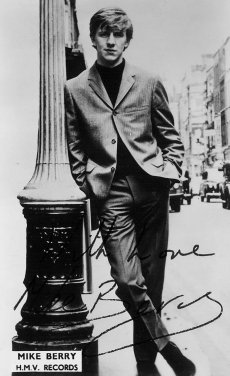
In the 1970s Mike began to appear with great regularity on British screens as a stalwart of the advertising world. "I started with photographic modelling and then progressed to commercials. There were a couple people might remember; OSL holiday villas where my limbs, and in particular my big toe stretched to several times their length to show how roomy the villas were. The toe stretching down into the swimming pool and the arms stretching out to get a beer from the fridge. The toe actually looked a bit rude, which is why a lot of people remember it. Then there was the Blue Riband Blues chocolate biscuit ad, which ran for three years. I would play guitar and sing "I got those can’t get enough of those Blue Riband Blues"... etc...very badly, and the dog would run off yelping and one of ‘my kids’ would bring me a Blue Riband Biscuit to shut me up! I made about 50 commercials in all."
With regular television work coming in, but no recording contract, Mike asked his old friend and long-time music associate, Chas Hodges, of Chas & Dave fame, to produce his next album. This association resulted in a top ten hit ‘The Sunshine Of Your Smile’, followed by two further hits and two successful albums. This also resulted in a gig that Mike would rather forget. "I did a tour and somehow got booked into a disco with my band and we just died a death! Again, the clubbers, as well as we, probably wondered what on earth we were doing there! Perhaps they thought they’d booked Stevie Wonder with ‘The Sunshine Of My Life.’ Who knows?"
One particular TV commercial proved to be very fortuitous. It was for 'TV Times' magazine and was directed by James Hill who happened to be casting for the children's series 'Worzel Gummidge.' He offered Mike the part of Mr Peters, the father of the two children that befriend the scarecrow. In all he appeared in 30 episodes, working alongside Jon Pertwee who Mike describes as always very encouraging, "we got along very well, he was great and a real pro, one of the old school and a perfectionist!" Jon also indirectly played a part in getting Mike his next major role on television. "Jon recommended me to his agent Richard Stone." Richard saw great potential for Mike in comedy and cast him in ‘Dick Whittington’ at the Congress Theatre in Eastbourne which had a cast that included Patrick Cargill, Victor Spinnetti, Lionel Blair and Frank Windsor. "He (Richard) also managed scriptwriter David Croft, so when David was looking for someone to replace Trevor Bannister who was leaving the hit sitcom "Are You Being Served?" Richard recommended me. The rest, as they say, is history."
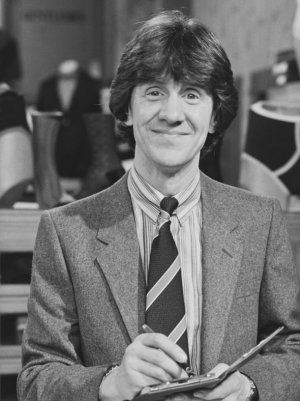
Trevor Bannister was already well established in the classic series as Mr Lucas, so was Mike self-conscious of the fact he was replacing a popular regular cast member? "Not self-conscious, nervous yes and apprehensive. The first script at least I’d say was still written for Trevor and probably cut down for me to do. It was a very sparse part in dialogue terms and took a while to build up, but you could feel the writing change to suit the character I had created. David and Jeremy were very observant in that way and would build on any potential strengths the actors revealed."
Mike appeared in the last three series and a couple of Christmas Specials of the show as Mr (Bert) Spooner and it was, he says, one of the most enjoyable experiences of his professional life, especially working with the other cast members. "We all had enormous fun and I became very fond of them, particularly Wendy, John and Molly, we had a similar sense of humour and therefore a lot of laughs. I was with John at the hospital near the end and it was very tragic to see that dear, funny man, with whom I’d had so many laughs and happy times, so ill. He is, and will be sadly missed."
Mike didn't appear in the spin-off series, "Grace and Favour" but continued acting with a theatre tour of Roald Dahl’s "James and The Giant Peach" and plays, including Willie Russell’s "One For The Road" and "The Diary Of Adrian Mole." Then a film followed, “Julie & The Cadillacs” and another TV series with comedian Tom O’Connor and the children’s series ‘Codsmorph’ and ‘The Parkies’. Sometime later Mike got a call from his agent inviting him to co-write and star in a new Rock ‘n’ Roll musical called ‘Tutti Frutti’, he took up the invitation and created the role of central character, Archie Culpepper, and enjoyed a year touring. They performed the best of fifties rock ‘n’ roll to packed houses, with standing ovations and audiences dancing in the aisles every night. His rekindled enthusiasm in music meant that acting has taken a back seat for a while with the exception of the occasional commercial, or cameo role in programmes like "The Bill." In 2006 Mike was invited to headline the ‘Clovis Music Festival’ in New Mexico; primarily a celebration of the music of Buddy Holly & The Crickets and their association with Norman Petty’s studio in the city where they recorded many of their hits.
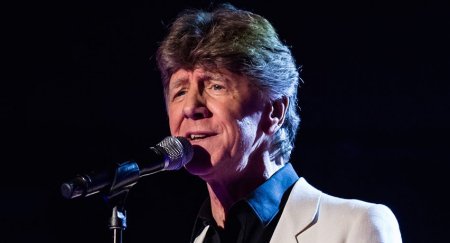
Other offers from the music industry still come in, and one in particular led to Mike releasing a 2007 Christmas single. "I was commissioned to co-write a Christmas song for the top band in Sweden, The Refreshments and ‘Hi There Darlin! (Merry Christmas),' was the result. However the demo turned out so well that we decided to release it ourselves along with ‘Chanson D’Amour’ which I’d been asked to release many times since performing it in ‘The Pop Star’ the very last episode of "Are You Being Served?".
Whether writing, performing music or acting, Mike Berry has pursued a very busy career. It hasn’t been without rewards or acknowledgment. He is recognised as the leading interpreter of Buddy Holly’s music by Holly’s own backing group who remarked, “Apart from Albert Lee, we wouldn’t work with anyone else.” He is also recognised by millions of fans around the world from children’s television to prime time sitcom. And today he retains an energy that ensures that he is one performer who will simply ‘not fade away.’
Interviewed by Laurence Marcus, 2 May 2008
